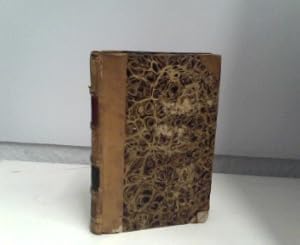Plautus Truculentus
Plautus Plautus (ca. 184 B.C.) was a Roman writer. His theatrical genius, vitality, farcical humor, and control of the rank him as Rome's greatest comic playwright. During the 3d century B.C., Roman writers began to imitate the forms and contents of Greek literature. Unlike the early poets, Plautus confined himself to one area: translation and adaptation of Greek New Comedy (ca.
Knowledge of the life of Plautus, whose full name was Titus Maccius Plautus, is scant. Random remarks by later Roman writers and others furnish the questionable details. From Cicero the date of Plautus's birth can be placed about 254 B.C. And his death about 184 B.C. Festus, scholar of the 2d century A.D., gives Plautus's birthplace as the small town of Sarsina in Umbria, Italy. From, a grammarian from the 2d century, comes the traditional and fascinating, if brief, account of Plautus's life in Rome.

Plautus Truculentus
Plautus earned money by working in the theater but promptly lost it in trade. Street fighter online free. He returned to Rome penniless and for a time supported himself by working as a laborer in a flour mill. During this period he wrote three plays (not extant).
Plautus Truculentus
Michael Katchmer, James Hanson, Laura Lippman, Mike Lippman, Tim Moore, and Meredith Safran performing a scene from Plautus' Truculentus. Read 'Plautus, Truculentus 78, Mnemosyne' on DeepDyve, the largest online rental service for scholarly research with thousands of academic publications available at your fingertips.

Scholars who accept this romantic career suggest that it may have been reported in Plautine prologues now lost. That Plautus earned money by theatrical work is generally accepted and may mean that he was a stagehand, carpenter, playwright, or actor. His mastery of stagecraft and comic effect suggests long experience as an actor prior to writing plays. Most intriguing is precisely how Plautus, an Umbrian from rural Sarsina, managed to acquire both a knowledge of Greek and the superb control of Latin displayed in his dramas. The total of Plautus's plays is probably close to 50. Twenty plays are extant more or less in their entirety: Amphitruo (Amphitryon), Asinaria (The Comedy of Asses), Aulularia (The Pot of Gold), Bacchides (The Two Bacchides), Captivi (The Captives), Casina (Casina), Cistellaria (The Casket), Curculio (Curculio), Epidicus (Epidicus), Menaechmi (The Twin Menaechmi), Mercator (The Merchant), Miles Gloriosus (The Braggart Warrior), Mostellaria (The Haunted House), Persa (The Girl from Persia), Poenulus (The Carthaginian), Pseudolus (Pseudolus), Rudens (The Rope), Stichus (Stichus), Trinummus (The Three Penny Day), and Truculentus (Truculentus). Fewer than 100 lines survive from the Vidularia (The Traveling Bag).